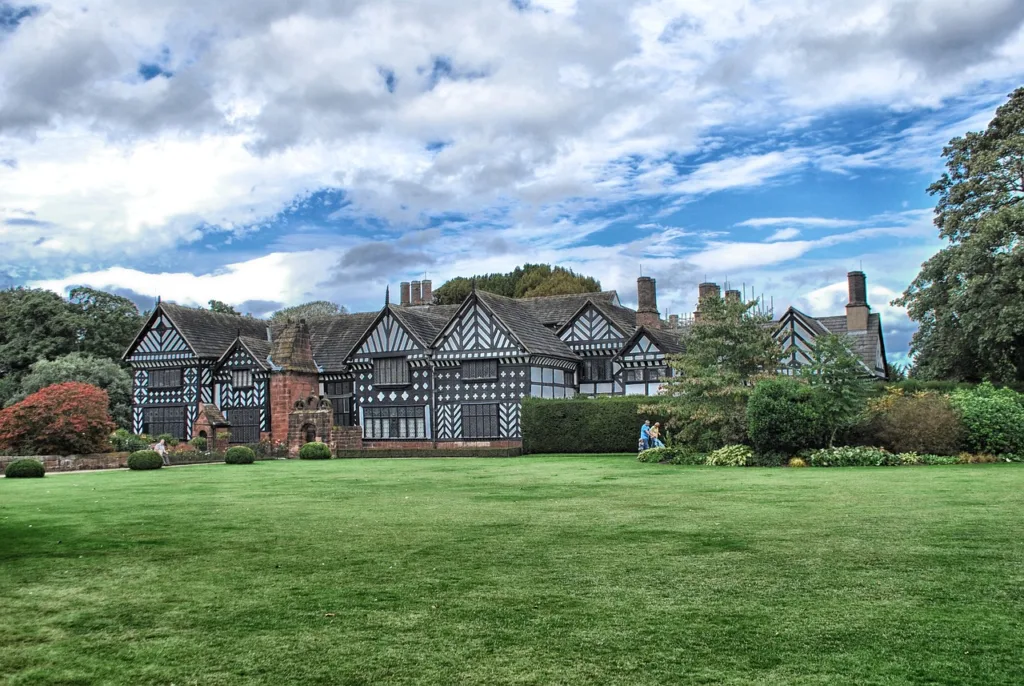Liverpool, a vibrant city located in the northwest of England, is renowned for its rich history, cultural heritage, and maritime significance. The city’s weather plays a crucial role in shaping the daily lives of its residents and the experiences of visitors. Understanding the weather patterns in Liverpool is essential for planning activities and making the most of your time in the city.
Seasonal Weather in Liverpool
The weather in Liverpool varies with the seasons, offering a diverse range of conditions throughout the year.

Spring
During spring, Liverpool experiences mild temperatures and occasional rain showers. This season marks the transition from winter to summer, with average temperatures ranging from 8°C to 15°C (46°F to 59°F). The city gradually warms up, and the days become longer, making it an excellent time to explore outdoor attractions.
Summer
Summer in Liverpool is characterized by warmer temperatures and longer daylight hours. From June to August, the city basks in average temperatures between 15°C and 22°C (59°F to 72°F). While rain is still possible, the summer months are generally drier, providing an ideal opportunity for outdoor events and festivals.

Autumn
Autumn brings cooler temperatures and an increase in rainfall to Liverpool. The city transitions from the warmth of summer to the chill of winter, with average temperatures ranging from 10°C to 15°C (50°F to 59°F). Despite the change in weather, autumn is a picturesque season as the city’s parks and gardens showcase vibrant foliage.
Winter
Winter in Liverpool can be cold and damp, with average temperatures between 4°C and 8°C (39°F to 46°F). Snowfall is rare but possible, and the city often experiences frost and icy conditions. Despite the chill, Liverpool remains lively during the winter months, with festive events and holiday celebrations.

Monthly Weather Breakdown
To further understand the weather in Liverpool, it is helpful to explore the monthly breakdown of temperatures and precipitation.
January
January is the coldest month in Liverpool, with average temperatures between 4°C and 7°C (39°F to 45°F). The city often experiences frost and occasional snowfall.
February
February brings slightly warmer temperatures, ranging from 5°C to 8°C (41°F to 46°F). Rainfall is common, and the days start to lengthen.

March
As spring approaches, March sees temperatures between 7°C and 10°C (45°F to 50°F). The city experiences a mix of rain and sunshine.
April
April marks the beginning of milder temperatures, with averages between 9°C and 13°C (48°F to 55°F). The city enjoys more frequent sunny days.
May
May sees a further increase in temperatures, ranging from 11°C to 16°C (52°F to 61°F). The city experiences a blend of sunshine and rain.
June
June signals the start of summer, with average temperatures between 14°C and 18°C (57°F to 64°F). The city enjoys longer daylight hours and reduced rainfall.
July
July is one of the warmest months in Liverpool, with temperatures ranging from 16°C to 20°C (61°F to 68°F). The city hosts various outdoor events and festivals.
August
August continues the trend of warm weather, with averages between 15°C and 20°C (59°F to 68°F). The city remains lively with summer activities.

September
As autumn approaches, September experiences temperatures between 13°C and 18°C (55°F to 64°F). The city sees an increase in rainfall.
October
October brings cooler temperatures, ranging from 10°C to 14°C (50°F to 57°F). The city’s parks and gardens display vibrant autumn colors.
November
November sees a further drop in temperatures, with averages between 7°C and 11°C (45°F to 52°F). Rainfall is common, and the city prepares for winter festivities.
December
December is one of the coldest months in Liverpool, with temperatures between 5°C and 9°C (41°F to 48°F). The city is adorned with festive decorations, and holiday celebrations are in full swing.
Conclusion
Understanding the weather in Liverpool is essential for planning your activities and making the most of your time in the city. From the mild temperatures of spring to the warm days of summer, and the cooler autumn months to the chilly winter, Liverpool offers a diverse range of weather conditions throughout the year. Whether you’re a resident or a visitor, being prepared for the city’s ever-changing weather will ensure you have a pleasant experience in this dynamic city.
Similar Articles
FAQs About the Weather in Liverpool
1. What is the average temperature in Liverpool?
The average temperature in Liverpool varies throughout the year. In the winter months of December to February, it typically ranges from 4°C to 8°C (39°F to 46°F). In the summer months of June to August, the average temperature is between 15°C and 22°C (59°F to 72°F).
2. How much does it rain in Liverpool?
Liverpool is known for its frequent rainfall throughout the year. On average, the city receives about 810 mm (32 inches) of rain annually. Rainfall is fairly consistent, with no distinct dry season.
3. Does it snow in Liverpool?
Snowfall is rare in Liverpool, but it can occur during the winter months. When it does snow, it is usually light and does not typically cause major disruptions.
4. What is the best time to visit Liverpool weather-wise?
The best time to visit Liverpool weather-wise is during the summer months of June to August. During this time, the city experiences mild temperatures, reduced rainfall, and longer daylight hours, making it ideal for outdoor activities and exploring the city.
5. What should I wear in Liverpool?
The weather in Liverpool can be unpredictable, so it is best to dress in layers. In the winter months, a warm coat, gloves, and a hat are recommended. In the summer, lighter clothing, sunglasses, and sunscreen are advisable. Always carry an umbrella or a waterproof jacket, as rain is common throughout the year.
6. Is Liverpool a windy city?
Liverpool can be windy, especially near the waterfront and during the autumn and winter months. The winds typically come from the west and southwest, and can sometimes be strong. It is advisable to wear a wind-resistant jacket when exploring the city during windy conditions.
7. How does the weather in Liverpool affect daily life?
The weather in Liverpool can have an impact on daily life, especially in terms of transportation and outdoor activities. Rain can cause disruptions in traffic and may lead to changes in plans for outdoor events. Despite the frequent rain, the city remains vibrant and active, with locals and visitors alike adapting to the changing weather conditions.
8. Are there any weather-related events in Liverpool?
Liverpool hosts various events throughout the year, some of which are influenced by the weather. For example, the city’s outdoor festivals and concerts are typically scheduled during the warmer summer months. Additionally, the city celebrates various winter festivities, such as Christmas markets and light displays, despite the colder temperatures.
9. What is the humidity like in Liverpool?
Liverpool experiences moderate humidity throughout the year. The humidity levels are typically higher during the summer months and lower during the winter months. The city’s proximity to the coast can contribute to the overall humidity levels.
10. How does the weather in Liverpool compare to other cities in the UK?
Liverpool’s weather is similar to that of other cities in the northwest of England, such as Manchester and Chester. The city experiences mild temperatures, frequent rainfall, and occasional snowfall during the winter months. Compared to cities in the south of England, such as London, Liverpool tends to be cooler and wetter.









